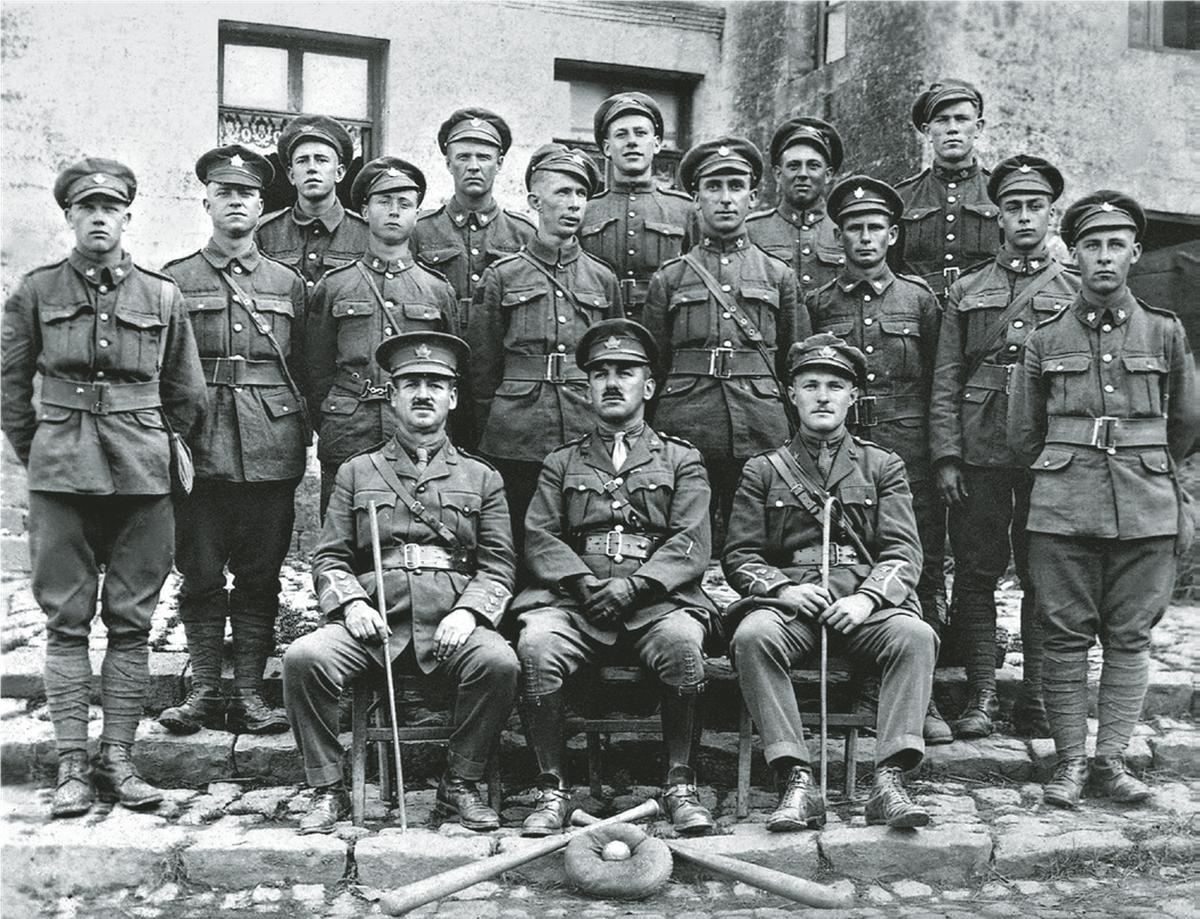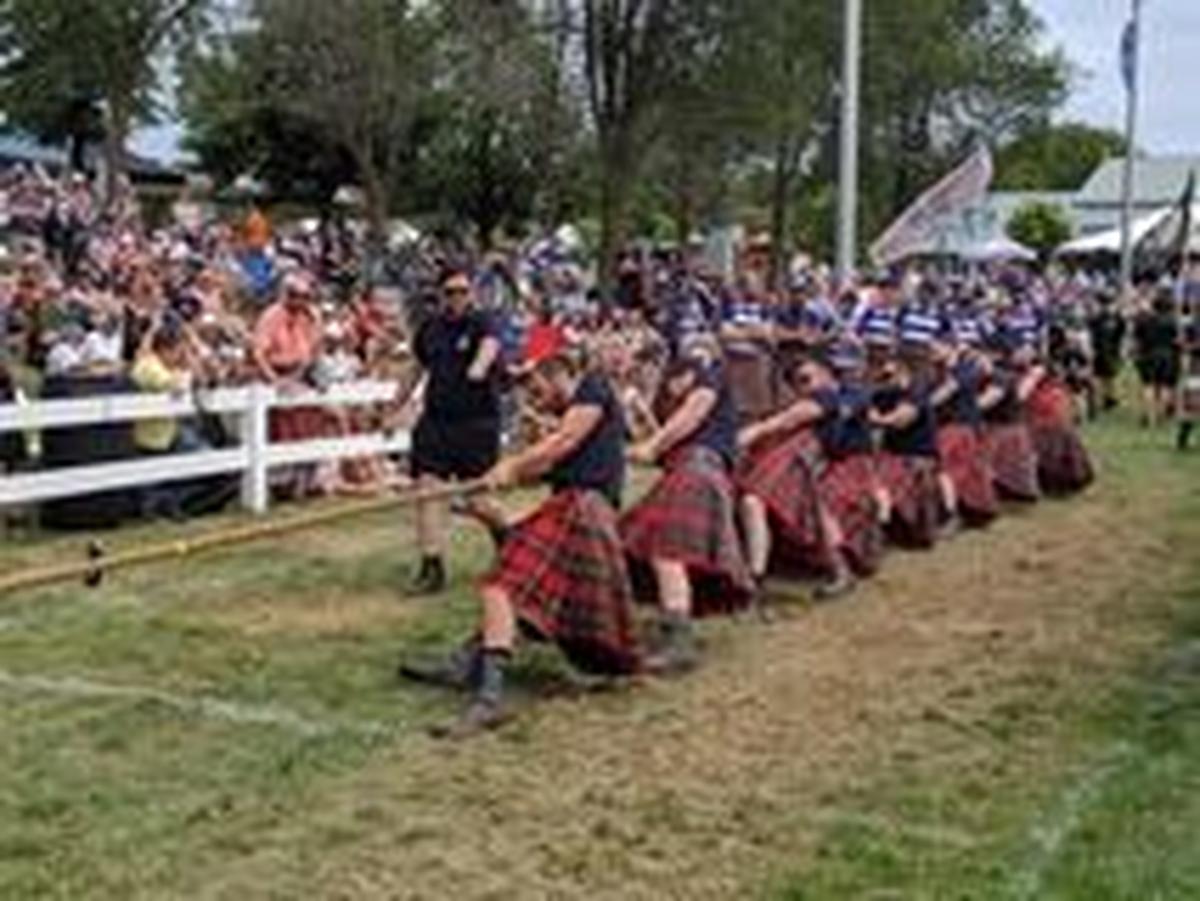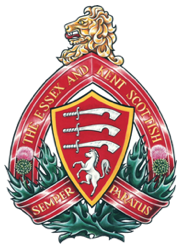Sports and Shooting Competitions in the Essex Scottish and Kent Regiment

A photograph of the 18th Battalion baseball team.
The competitiveness and team spirit inspired by participating in sporting activities is invaluable in the training and developing of soldiers both physically and mentally. While helping with physical fitness and strength building, sports also improve reflex times and decision-making skills. Due to these factors, it is not surprising that soldiers often joined the military already having some form of athletic prowess. In the Essex Scottish, CSM Con Stapleton was an avid swimmer. Lance-Corporal Everett Ross Maracle was a talented boxer before he enlisted. Major T.E. Steele was a skilled hockey player. Many men who enlisted with the regiments also had experience on rifle teams at local high schools such as Walkerville and Kennedy Collegiate. Victoria Cross recipient Lance-Corporal Ellis Sifton also had experience with a rifle club before he enlisted with the 18th Battalion, Canadian Expeditionary Force.
Sports were integrated in the soldiers’ training regimens. Basic training included competitions for target shooting. Soldiers’ physical training involved running, marching, and climbing. Consequently, track and field competitions were commonplace. The spirited rivalries between regiments and their companies boosted morale and engagement with the training routine. Winning one of these competitions also spurred pride in being part of the regiment.
Once in England for training during the First World War, soldiers in the 18th Battalion participated in team sporting activities such as baseball games. On Dominion Day, the men had a sports afternoon. On Brigade Sports Day on 17 June 1917, the 18th Battalion soccer team tied for the championship and its baseball team won the championship against the 21st Battalion. In the same month, its soccer team won the tiebreaker to win its championship against the 20th Battalion. The Canadian Corps also held a Sports Day at Camblain-l’Abbé, where the soccer team was champion. Private Laird of the 18th Battalion also won the high jump competition. On 24 September 1917, the battalion’s baseball team won the 2nd Canadian Division Baseball Championship against the divisional machine-gun battalion. The team was integral to the chemistry of the unit. It was stated that Lieutenant-Colonel “Tubby” Jones “loved his men even better than his baseball and that was saying something,” meaning that his enthusiasm for the sport was a large part of his leadership strategy. These types of games aided with physical conditioning, but they also provided a welcome escape from the mentally exhausting daily life in barracks or on the frontline. While injuries were a hazard of playing sports, the camaraderie built through these games was invaluable to the cohesion and loyalty of the units. It was also a way for the local populace to engage with the units.
During the Second World War, much of the same activities were popular in the Essex Scottish Regiment. Every Wednesday was regimental Sports Day. On 9 October 1940, the men participated in a sports program that ended in a softball game. Later, games such as soccer, Canadian football, and volleyball were added to the docket. Sports were also activities seen by visiting senior generals. Sir Alan Brooke, Commander-in-Chief of Home Forces watched a regimental softball game on 1 August 1941. In September, the Scottish also competed in softball tournaments against other regiments in the 4th Canadian Infantry Brigade - the Royal Regiment of Canada and the Royal Hamilton Light Infantry. In July 1942, the regiment participated in the 4th Brigade Dominion Day celebrations, where they won games of softball and volleyball.
Prisoners of war also engaged in sports for physical exercise and for recreation, such as volleyball games and boxing matches. The type of sport varied throughout the year, as softball and basketball were played outside in the summer. According to letters written home by Sergeant Jim Scott of the Essex Scottish in WWII, local civilians sometimes came and watched the games. While exercise was required to be provided to prisoners of war due to the Geneva Convention, sports events also made living in a prison camp more tolerable. Private Michael Coyle of the Essex Scottish stated in his memoir that playing softball gave him and other soldiers an opportunity to trade for food with local Polish citizens without the German guards being aware. The men hit softballs into the trees, and as they went to retrieve them, they would also take contraband food and smuggle it back into their huts. Even the German guards enjoyed the festivities; Coyle stated that the German guards keeping watch were “downright gleeful” when a player got tagged out.
In Canada, regiments sent contingents of men to compete against other local regiments for trophies. For example, the Essex Scottish won a marksmanship contest against the Michigan National Guard in 1930. In the same year, three regimental teams placed in the top five at the Otter Cup competition for Lewis gunners in Toronto. The regiment won the cup that year due to having two teams with the highest combined average. In an unprecedented display of ability, the regiment won the trophy again the next year. The Essex Scottish also won the Canadian Infantry Cup in 1927, 1928, 1930, and 1932. In 1931 and 1932, B Company of the Essex Scottish won the Dominion Lewis Gun Competition in Ottawa. These tournaments were intended to practice practical skills but also to form bonds between regiments.
In the post-war years, contingents from both the Essex Scottish and the Kent Regiment competed against other regiments at Camp Niagara-on-the-Lake. In 1952 and 1953, the Essex Scottish won the No.1 Infantry Brigade Military Proficiency Trophy. Lieutenant-Colonel Doug McIntyre’s Exercises BEAVER and BEAVER II were excellent training for the men, and they performed well. He also planned Exercise MUSKRAT, which involved other units. These were part of the effort by the Kents to “foster unit spirit” and increase recruitment. In later years, these competitions between regiments extended to Tug O’ War tournaments that have become hotly contested.
Story by Nicole Pillon, Canada Summer Jobs 2022 participant
with The Essex and Kent Scottish Regiment Association
Sources
- Duty Nobly Done: The Official History of the Essex and Kent Scottish Regiment by Sandy Antal and Kevin R. Shackleton, 2006: Chapter 5, 6, 9, 10, 13
- Collection of letters by Sergeant J.W. Scott
- “Obituaries – Maj. Si Steele.” National Post. https://army.ca/forums/threads/obits-maj-si-steele-and-ltcol-paddy-boden.3032/
- CSM Stapleton interview for Duty Nobly Done

Essex Scottish Members competing in a tug-o-war during the Scottish games.
